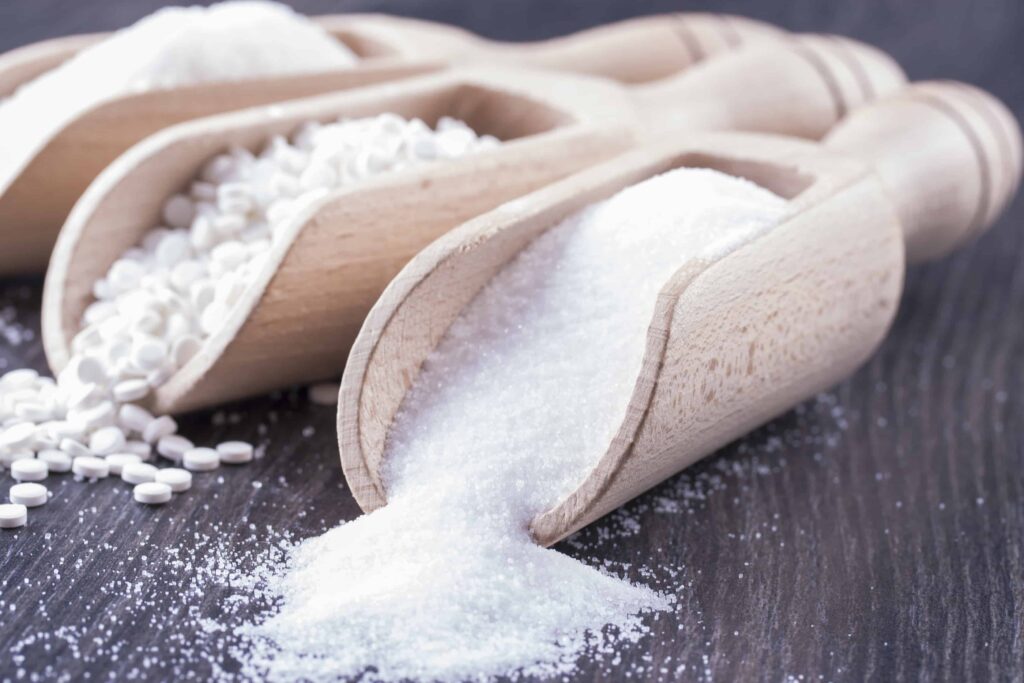You may recognize aspartame as an ingredient in your low-calorie sugar packets, sports drinks, sodas, and other beverages. Aspartame and other artificial sweeteners have become popular in diet culture as a substitute for real sugar as a way to reduce caloric intake. Since aspartame is about 200 times sweeter than sugar, it takes a lot less aspartame to reach the same sweetness that sugar has. While this may seem like a great benefit to consuming fewer calories by substituting sugar for this artificial sweetener, studies show that aspartame consumption actually increases the risk of obesity and diabetes. More and more research shows that aspartame poses many more threats than benefits that you should be aware of before choosing that low-cal option.
Let’s consider what happens on a chemical level when we consume sweets. Our brains LOVE sugar. Every time we give our brain sugar, a surge of dopamine is released to our reward center, giving us that craving for more. This is a natural response that becomes dysregulated when sugar is consumed in high amounts, resulting in addiction. When you make the switch to an artificial sweetener, your brain gets confused and overstimulated with this sugar substitute causing a shift in your chemical balance.
Studies show that this chemical shift causes metabolism to slow, hunger to rise, and addiction to surge. In essence, the consumption of lower-calorie artificial sweeteners slows down your metabolism, makes you more hungry, and causes you to be addicted to repeating this cycle of eating more and breaking down less. All this to say, artificial sweeteners may be fewer calories per teaspoon compared to sugar, but both animal and human studies show that through this metabolic mechanism, they actually increase weight gain and risk for obesity and diabetes.
If this isn’t frightening enough, there is also sufficient data that show aspartame increases the risk of cancer. In a rodent study, the incidence of malignant tumors increased significantly with low doses of aspartame administered. If you are genetically at risk for any type of cancer, you should absolutely avoid artificial sweeteners at all costs.
All in all, it is better to consume real sugar in moderation than to consume artificial sweeteners as a substitute.















